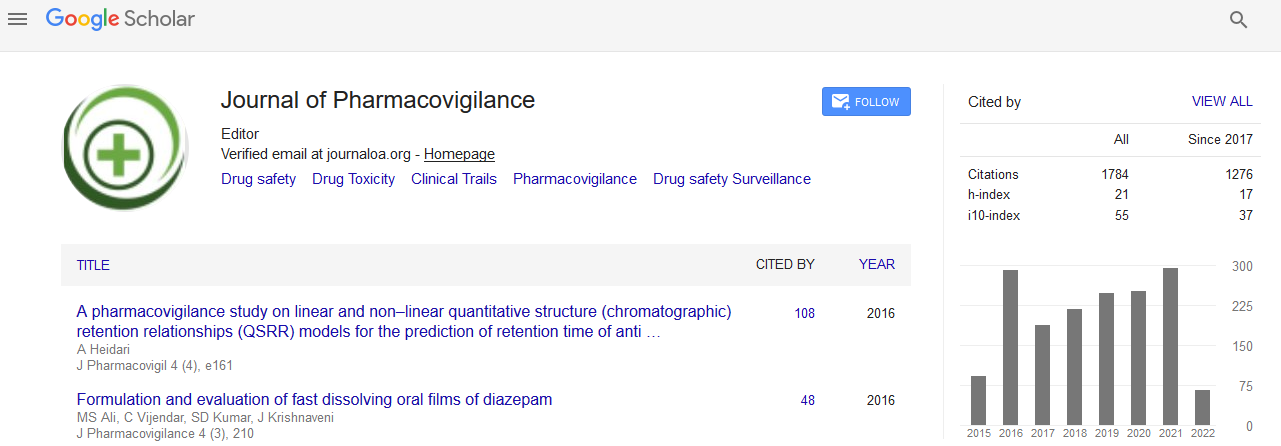Indexed In
- Open J Gate
- JournalTOCs
- The Global Impact Factor (GIF)
- RefSeek
- Hamdard University
- EBSCO A-Z
- OCLC- WorldCat
- Publons
- Euro Pub
- Google Scholar
Useful Links
Share This Page
Journal Flyer

Open Access Journals
- Agri and Aquaculture
- Biochemistry
- Bioinformatics & Systems Biology
- Business & Management
- Chemistry
- Clinical Sciences
- Engineering
- Food & Nutrition
- General Science
- Genetics & Molecular Biology
- Immunology & Microbiology
- Medical Sciences
- Neuroscience & Psychology
- Nursing & Health Care
- Pharmaceutical Sciences
Abstract
Impact of Medication Reconciliation upon Discharge on Reducing Medication Errors
Sara Al Khansa, Amnah Mukhtar, Merryland Abduljawad and Mohammed Aseeri
Background: Medication errors at the time of hospital admission and discharge are common and can lead to preventable adverse drug events. Medication reconciliation is a technique for identifying discrepancies in drug regimens, forming prescribing decisions and preventing medication errors. Accurate and complete medication reconciliation is an important patient safety issue which can prevent harm. Objective: To determine the incidence and characteristics of unintentional medication discrepancies and to describe the potential impact of medication reconciliation to identify and rectify medication errors at the time of hospital discharge. Design and setting: Retrospective study conducted at King Faisal Specialist Hospital (KFSH) in Jeddah from the period of July 2010 till June 2011. Patients: 100 patients were selected from each month (February, March, April-2010) making a total of 300. Method: Data was retrieved from the outpatient pharmacy, discharge section where medication reconciliation is conducted and records are kept in a monthly filing system. Medication discrepancies at discharge were determined by comparing medications lists at discharge with pre-admission and in-patient medications. All variances were classified as intended or unintended (medication errors). The primary outcome was the number and type of these unintentional discrepancies. Results: Majority of patients where under internal medicine and lowest percentage being in pediatrics. Mean number of discharge medications was 8 (SD ± 3). Total number of discrepancies was 200 (8.6%). 108 (34.67%) patients had discrepancies. Out of these, 93 (86.1%) were adults and 15 (13.9%) were children. Omission error was the most common type of discrepancy (63%), and drug interactions (0.3%) was the least. Improper dose was the most common prescribing error (32.4%), and improper frequency (15.1%) was the least. 19.3% of patients had at least 1 discrepancy. Most of the discrepancies where under internal medicine and cardiology. Most discrepancies were noticed in the month of February. Conclusion: Unintended medication variances at the time of hospital discharge are common. Medication reconciliation was a successful tool in detecting and rectifying discharge medication errors.


